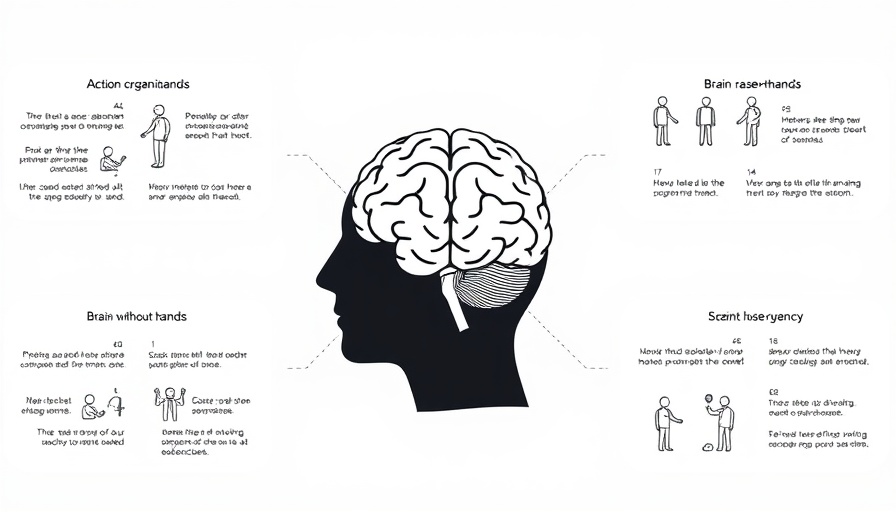
The Remarkable Brain's Adaptability in the Face of Adversity
Recent research has unveiled astonishing insights into how the brain organizes itself, particularly in individuals born without hands. A study conducted using advanced brain imaging techniques has shown that even in the absence of certain physical appendages, the brain can adapt remarkably, organizing itself around action-based modalities rather than traditional sensory inputs. This research not only challenges previous understandings of brain plasticity but also raises important questions about how we define functionality in physical forms.
Understanding Brain Plasticity: A Deep Dive
Brain plasticity refers to the brain's ability to adapt itself in response to changes in the environment or the loss of certain abilities. Research has indicated that individuals born without hands have developed unique methods of brain organization that allow them to perform tasks that others might assume would require traditional motor skills. For instance, the regions typically associated with hand movement activate during actions involving tools or interfaces, demonstrating that the brain can reassign roles based on necessity.
Action-Based Organization: How It Works
This action-based organization means that the brain processes information differently from those who have hands. Instead of focusing purely on tactile or motor function, these individuals engage cognitive pathways linked directly to actions associated with their everyday experiences. Such discoveries not only broaden our understanding of neurobiology but also serve as a reminder of the human spirit's resilience and inventiveness.
Implications for Health and Wellness Practices
Understanding how the brain compensates in this manner has far-reaching implications for fields such as health and wellness. In communities, holistic approaches that emphasize mental and physical integration can support optimal health and wellness. Practitioners can draw inspiration from these findings, integrating action-oriented therapies that engage patients holistically, thereby promoting well-being across various demographics.
Unlocking New Meaning in Rehabilitation
For professionals in health and rehabilitation, these insights shed light on the power of adaptive strategies. In creating personalized therapy plans, clinicians can encourage patients to leverage their existing skills while exploring new ones, encouraging a more inclusive environment. This research underlines the necessity of adaptable rehabilitation techniques that resonate more with patient experiences than strictly defined physical limitations.
The Future of Neurorehabilitation Techniques
Looking forward, these advances in understanding brain dynamics may pave the way for the development of innovative neurorehabilitation techniques. By designing interventions that resonate with action-based cognitive processing, health professionals can enhance quality of life and support skill acquisition in nontraditional ways. The synthesis of this type of research will likely inspire the creation of new wellness models that include both mental and physical health strategies.
Emphasizing Holistic and Alternative Approaches to Health
Given the unique challenges presented by patients with diverse bodily experiences, there remains significant value in natural therapies and complementary treatments that focus on the whole person. Approaches drawn from naturopathy, wellness centers, and lifestyle medicine can create multi-faceted healthcare strategies tailored to individual needs. Emphasizing nutritional supplementation and natural healing methods can be vital in the journey towards holistic well-being.
Engaging Communities: Creating Space for Inclusion
As this research demonstrates the adaptability of the human brain, it calls for a collective responsibility to create inclusive spaces that respect and respond to various abilities and forms of functioning. Community health initiatives must embrace diverse methodologies in health and wellness, ensuring all individuals have access to vital living resources. This approach not only enhances community ties but also fosters a spirit of resilience.
In reflecting on these findings, we must consider their broader implications within the health and wellness landscape. The resilient adaptability of the brain is a testament to human potential, and as we explore these avenues, let us encourage revolutionary practices that help everyone live their fullest lives.
As we delve deeper into these discoveries, it becomes essential to integrate insights from brain adaptability into the realm of health and wellness. By understanding the diverse ways in which individuals can thrive despite challenges, we foster a more supportive and inclusive environment across communities.
 Add Element
Add Element  Add Row
Add Row 




Write A Comment